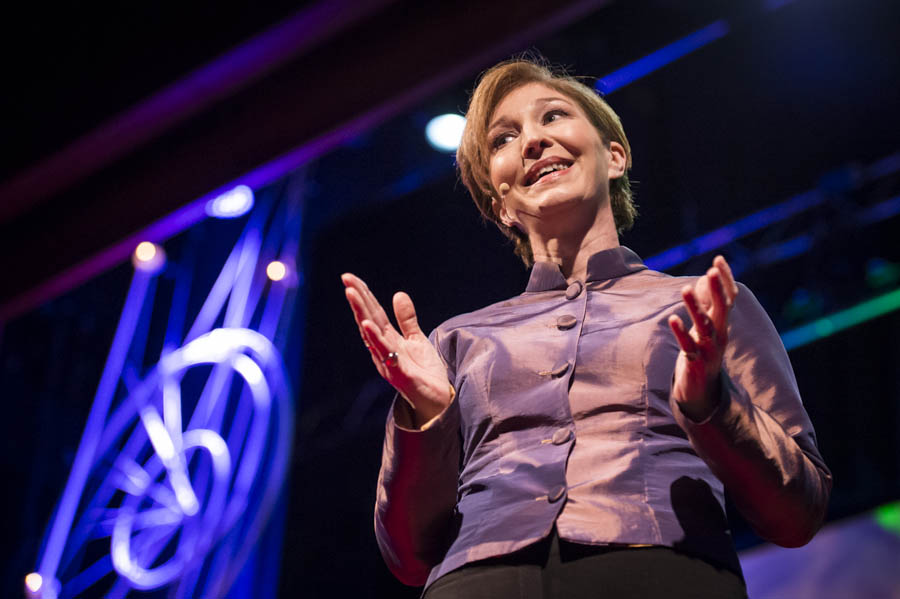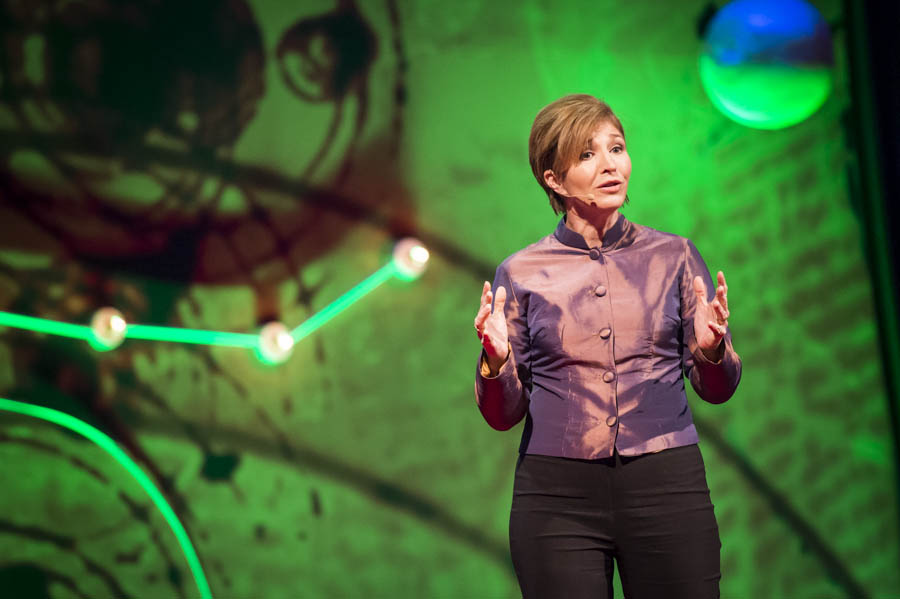Anne-Marie Slaughter, public policy expert and author of the widely read 2012 article “Why Women Still Can’t Have It All,” closes the first session of TEDGlobal with a talk about how she became a woman she never imagined.
In 2010, Slaughter, says, “I had the chance to be considered for promotion from my job as Director of Policy Planning” at the State Department. She knew she was ready for the job, she knew she could handle it. “It was my moment to lean in,” she says frankly. But she had been commuting for two years between Princeton and D.C., leaving her husband and two sons to fend without her during the week. She says, “The woman I thought I was would have said yes.” But unable to face the idea of missing out on her sons’ growth, she turned down the job. “Deep down, I knew the right decision was to go home. Even if I didn’t fully recognize the woman making that choice.”
Slaughter still believes that the measure of male-female equality is in how many women are in high-level positions — but that’s only half of real equality. Equality is not just measuring women on men’s terms, says Slaughter; it means much bigger institutional changes. Having reassessed completely her view on feminism, Slaughter suggests three areas where change needs to happen.
The workplace
The most successful companies value caregiving. In Slaughter’s view, if family comes first, that does not mean work comes second; rather, life comes together. Workers who have a reason to get home are more productive and efficient, and breadwinners who are also caregivers are more flexible and have wider ranges of experience, says Slaughter. The benefits of caregiving are undeniable: It develops patience, empathy, creativity, resilience, adaptability — all traits that lead to more satisfaction in the workplace and lower levels of stress.
Public policy
Governments need policies that recognize the equal value of breadwinning and caregiving, and they need to invest in both. To support the health of families — and not just women — the law should provide universal childcare, job protection for pregnant women, care for the elderly and support for the disabled. Countries with strong family support measures, like Norway, Sweden, Denmark and the Netherlands, remain at the top of the OECD Better Life Index, above countries with higher levels of income.
Culture
Society needs to re-socialize men. In many societies, women, who can be respected as breadwinners, caregivers or a combination, are now often the ones with more choices. Meanwhile, a man who decides to be a caregiver puts his manhood on the line. What can be done? Slaughter says that men should value in their counterparts more than just a scramble for the top of a professional ladder, and women shouldn’t measure their mates by their success in the workplace. In addition, boys should be encouraged to choose caregiving or breadwinning. In short: Make caregiving cool for dudes.
These, Slaughter says time and time again, are not women’s issues but family issues. The way forward is toward an equality that will benefit all. The revolution is already beginning, says Slaughter. How fast and how far is up to us.


Comments (15)
Pingback: TED talk – How we can all have it all. | ten2twomk
Pingback: Further reading on women and the workplace
Pingback: Further reading on women and the workplace | BizBox B2B Social Site
Pingback: Further reading on women and the workplace | Best Science News
Pingback: Further reading on women and the workplace | Cherry Wired
Pingback: Why Anne-Marie Slaughter Thinks We Need A 'Men's Movement' - WMASAW : WMASAW
Pingback: Anne-Marie Slaughter: ‘I think we need a men’s movement’ - rss news
Pingback: %post_,title% | %blog_title, %
Pingback: Anne-Marie Slaughter: 'I think we need a men's movement' « News in Briefs
Pingback: How Much Should the Healthcare Workplace Change to Accommodate Women Physicians? | Women MD Resources
Pingback: How can we all “have it all”?: Anne-Marie Slaughter at TEDGlobal 2013 | Emily Baldwin Social Media Maven, Possibilites and Ideation